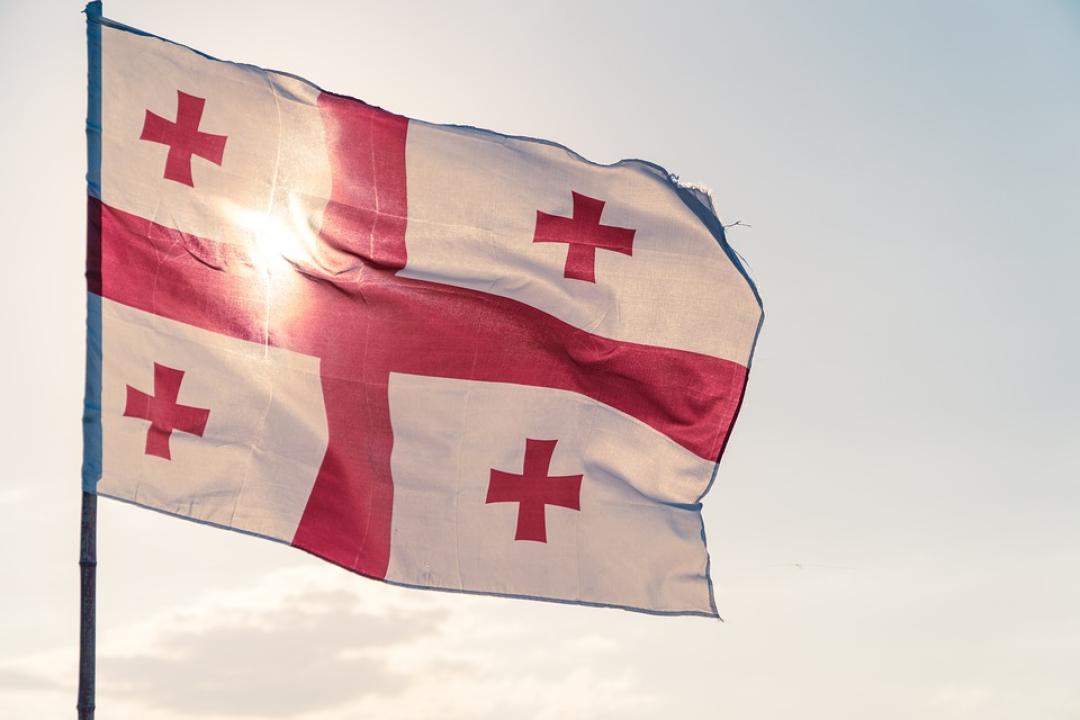
Georgian Dream Defends EU Delay Amid Protests and Diplomatic Resignations; Protesters Challenge Georgian Dream’s EU Integration Stance

On November 28, the Georgian Parliament, comprised exclusively of Georgian Dream MPs, approved Prime Minister Irakli Kobakhidze’s proposed cabinet with 84 votes. The government’s program, titled "Only with Peace, Dignity, Prosperity to Europe," emphasizes priorities such as Euro-Atlantic integration, restoring territorial integrity, and strengthening strategic partnerships.
During the session, no questions were raised, and Kobakhidze expressed confidence in his team, stating, “We have the real top brains in the government team.” The program reiterated Georgia’s commitment to Euro-Atlantic aspirations, pledging continued reforms for EU integration, efforts to open accession talks, and active consultations with NATO members. Regarding the United States, it proposed a "reset" of relations based on equality and fairness, alongside a focus on regional security and cooperation with Azerbaijan and Turkey. The document also prioritized economic ties with China and included plans to pursue observer status in the China-CEEC framework.
On the same day, the European Parliament adopted a resolution condemning Georgia’s democratic backsliding. It cited alleged electoral fraud during the October 26 parliamentary elections, called for sanctions against Georgian Dream leaders, and demanded new elections under impartial oversight. The resolution criticized the ruling party for creating an uneven electoral playing field, noted concerns raised by international observers about transparency and manipulation, and recommended suspending Georgia’s EU visa-free status if reforms were not implemented. It also acknowledged President Salome Zourabichvili’s efforts to promote democracy and urged her to pardon former President Mikhail Saakashvili.
Government’s Response
Kobakhidze rejected the European Parliament’s criticism, accusing European politicians and bureaucrats of interfering in Georgia’s sovereignty and using EU grants and loans as leverage. He announced Georgia would postpone EU accession negotiations until 2028 and refuse EU budgetary support during that period. He argued this decision was necessary to protect Georgia’s dignity and ensure the country is fully prepared for EU membership by 2030, stating, “We will enter the EU not as beggars but with dignity.”
Opposition and Protests
Meanwhile, President Zourabichvili convened opposition leaders at the Atoneli Residence to address the political crisis. Figures such as Elene Khoshtaria and Mamuka Khazaradze praised Zourabichvili’s leadership in uniting the country around its European agenda. Protests erupted nationwide, with rallies in Zugdidi, Kutaisi, Batumi, and Tbilisi. Demonstrators gathered outside Parliament, Georgian Dream headquarters, and the Presidential Administration.
In Kutaisi, activist Misha Mumladze was arrested during a peaceful protest, accused of disobeying orders and verbally assaulting police. Witnesses, however, reported excessive force during the arrest.
Zourabichvili’s Address
President Zourabichvili strongly criticized Georgian Dream’s decision to delay EU accession talks, describing it as the culmination of a “constitutional coup” following the allegedly rigged October 26 elections. She called for new elections and urged unity among opposition parties, ambassadors, civil servants, police, and the military.
Zourabichvili accused the government of steering Georgia toward Russia, stating its actions marked the end of Georgian statehood, independence, and its European future. She appealed to European diplomats for decisive action, criticized their delayed response to the crisis, and pledged to stand as Georgia’s “only remaining legitimate institution.” Addressing civil servants, ambassadors, and security forces, she urged them to prioritize Georgia’s sovereignty and resist a return to Russian influence.
Diplomatic and International Reactions
Following Georgian Dream’s announcement, the Ministry of Foreign Affairs issued a joint statement condemning the decision to pause EU accession talks until 2028, arguing it contradicted Georgia’s strategic interests and constitutional obligations. The diplomats emphasized the urgency of EU integration, warning that isolation would jeopardize Georgia’s security and prosperity.
On November 28, Russian President Vladimir Putin commented on the developments, stating that Russia had no official relations with the Georgian government. Expressing surprise at the government’s actions, he remarked, “We have no relations with them, with the Georgian leadership, none whatsoever.”
On November 29, the Georgian Ministry of Internal Affairs announced the arrest of 43 protesters near Parliament in Tbilisi for charges of petty hooliganism and disobedience. Meanwhile, EU Ambassador Paweł Herczyński criticized Georgian Dream’s decision as “regrettable” and contrary to the will of most Georgians. He highlighted the government’s backsliding on EU principles and noted that the EU Foreign Affairs Council would address Georgia’s situation on December 16, leaving “all options on the table.”
Growing Discontent and Resignations
Prime Minister Kobakhidze defended the government’s stance, accusing opposition parties, NGOs, and EU Ambassador Herczyński of spreading disinformation and interfering in domestic politics.
Dissent within the diplomatic corps continued to grow. Otar Berdzenishvili, Georgia’s Ambassador to Bulgaria, resigned in protest, citing his commitment to Georgia’s Euro-Atlantic aspirations. Shortly afterward, Davit Zalkaliani, Georgia’s Ambassador to the United States and a former Foreign Minister, also announced his resignation.
Nationwide protests continued, with students and activists denouncing the government’s decision as a step toward a “Russian regime.” Universities and regional activists joined the demonstrations, expressing solidarity with peaceful protesters and reaffirming Georgia’s commitment to its European future.
See Also


Mirzoyan Meets US Deputy Assistant Secretary Joshua Huck

Azerbaijani President Holds Talks with UAE and German Business Delegations on Economic Cooperation

Grigoryan Confirms Armenia’s Readiness to Dissolve OSCE Minsk Group Upon Peace Treaty Signing

Azerbaijani Official Warns of Ecological Risks to Caspian Sea, Similar to Lake Urmia and Aral Sea

